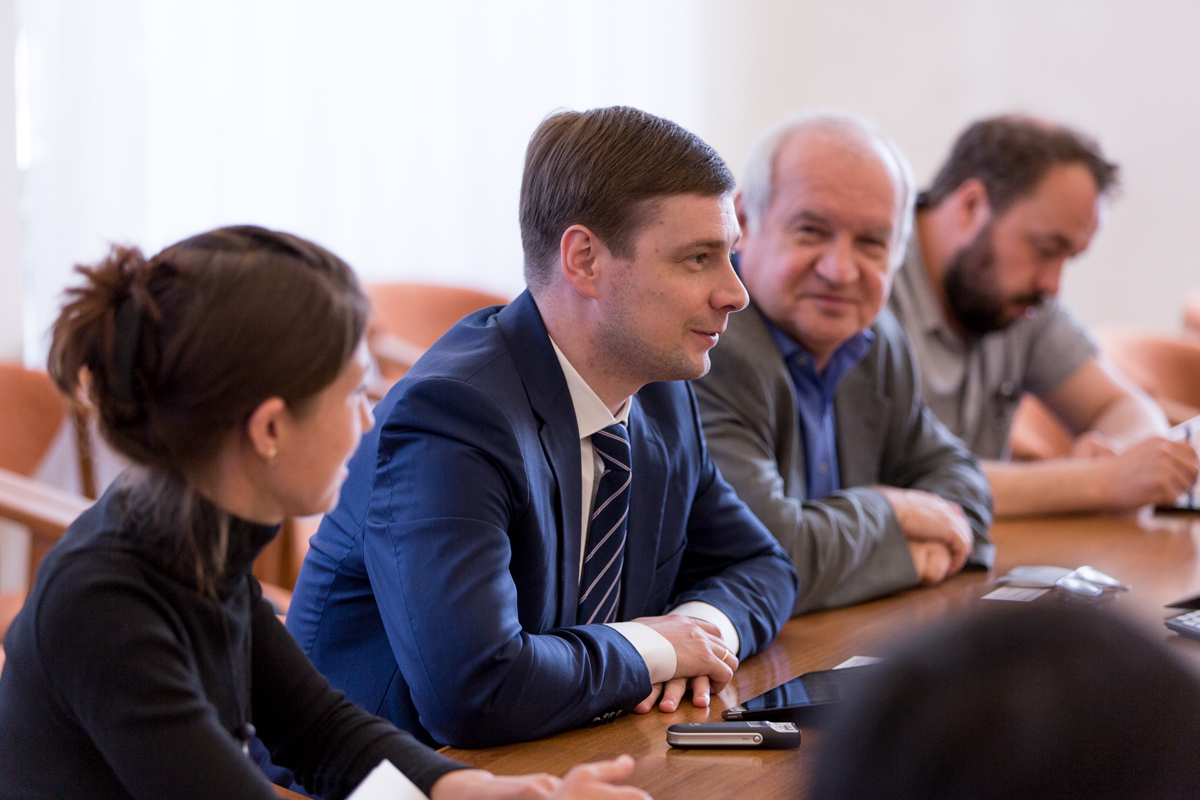Environment protection: SPbU and Qinghai

The delegation of the province Qinghai has paid an official visit to St Petersburg University to discuss collaboration in biology and environment protection between the University, province’s Government and universities.
This region is one of the largest, but little populated in China, says the head of the human resources of the province Qinghai and permanent member of the committee for education Mr Hu Chanshen. Due to the low impact of human activity on the environment of the region and its location, it is ecologically the safest in China. The province is rich in natural and ecological resources: it is the source of the two longest rivers Yangtze and Huang He; and as it is located high in the mountains (three km above the sea), it has solar and wind power. The electricity is generated by the natural resources, rather than coal; natural resources generate about 10% of electrical power in the country. Located mostly high in the mountains, the province has a great variety of animals and an excellent potential for meteorological research.
Collaboration with SPbU is a high priority with the province, says Mr Hu Chnashen, especially research collaboration in biology and environment protection. SPbU’s Deputy Rector for International Affairs Sergei Andrushin told that the University had more than 400 university-partners from 60 countries, and 40 of them were in China. “SPbU has a direct agreement with the Government of China, and Chen Bao-Sheng has recently visited SPbU to discuss how to expand collaboration under this agreement, ― said Sergei Andrushin. — This collaboration has cemented our ties with China”.
The parties also discussed potential areas for cooperation. SPbU’s Prof Sergei Kholodkevich said that the University and Chinese universities carried out the joint research projects in protecting the water supply from terrorism (Harbin Institute of Technology) and environment assessment through the bio-indicators: mollusca and crustacean (Chinese Academy of Sciences), while SPbU’s Associate Prof Oleg Levin told that the University had research groups which monitored environment pollution and developed alternative energy. At the end of the meeting, the parties agreed to prepare a draft of the collaboration agreement.

